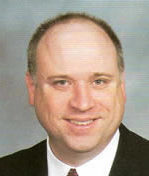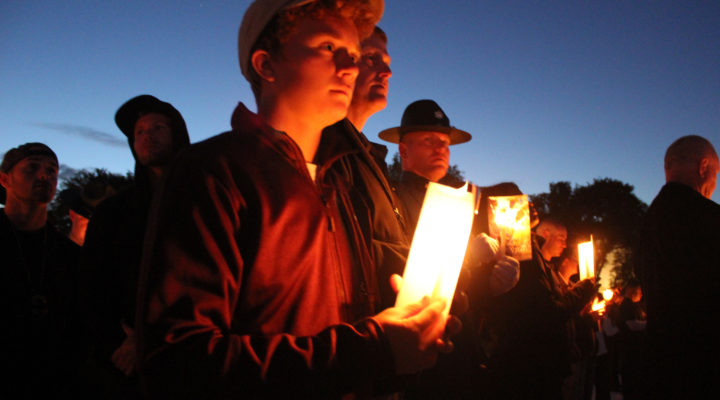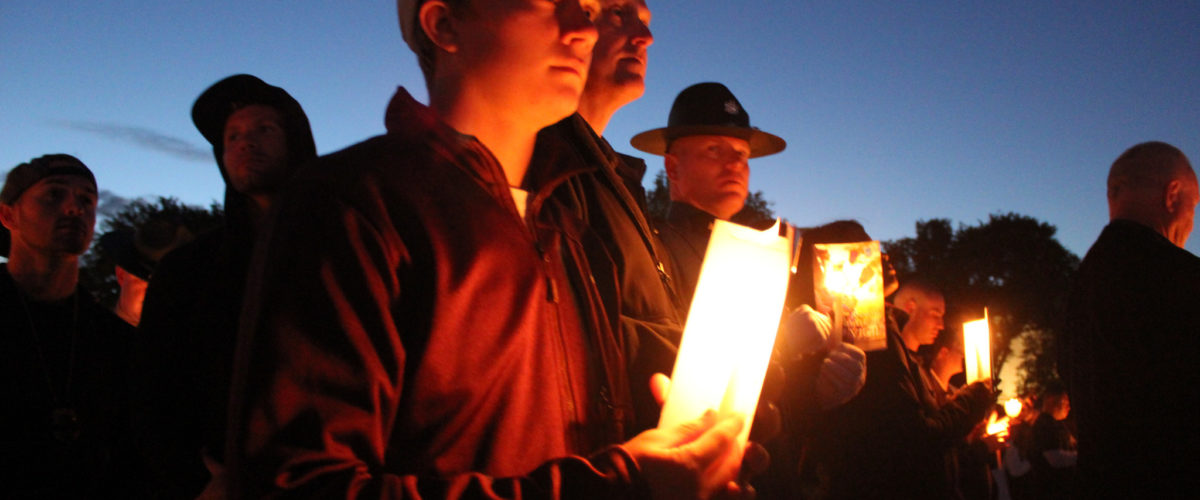The town of West, Texas, took one on the chin when an April 2013 fertilizer plant explosion flattened or damaged scores of homes, destroyed schools, killed 15 people and injured hundreds of others.
But the community located about 20 miles north of Waco has been making a steady comeback in the last five years, and the mood is looking up.
“There is a whole different feel, because a few weeks ago we got rid of the water tank which was damaged in the explosion,” said John Crowder, pastor of First Baptist Church in West. “That water tank was the last piece that had to go to signal our complete physical recovery as a town.”

John Crowder
Crowder and his church became a hub of disaster relief and response efforts immediately after the explosion. He and his family were one of those who lost their home in the blast.
Crowder said there is still a lot of work to be done in the realm of emotional rebuilding.
“We do have folks who are dealing with a version of PTSD,” he said.
Another open wound, he added, is the unsolved crime behind the fire and blast, for which federal authorities are offering a $50,000 reward.
Crowder spoke with Baptist News Global about the April 17 anniversary. His comments are edited for clarity.
How many speeches and media interviews about the anniversary have you given lately?
Oh gosh, I don’t know. At least a dozen. Probably eight or nine media interviews, and I’ve spoken on three or four different occasions. Its been kind of crazy.
There were images online of you speaking at one of the April 17 anniversary events. Was that in a school?
We had lost the high school, the intermediate school and most of the middle school. We built brand few facilities for middle and high school — that’s one big building joined in the middle by cafeteria, auditorium and gym.
Where have those events been held previously?
Every year we have had a memorial service at the Catholic church because it was the only place big enough to hold the crowd. But this year, since it was the five-year anniversary, we didn’t want another memorial as much as a celebration. We met at the schools because it was one of the great achievements in our recovery and we wanted to showcase it. That allowed us the opportunity to change the atmosphere from kind of a mournful memorial service to a celebration, thanking God for helping us to recover.
Was it getting old talking, year after year, of the tragedy?
There was a time when it was, yes. It got very tiring and kind of discouraging to continually talk about the same problems and the same issues. Getting rid of the water tower on the north side of town helped change that. We have a new water tower in its place. There was a big sigh that it was finally done. The whole community is much happier. There’s a lot more hopeful outlook on where we are headed now.
How are other parts of the physical recovery going?
We want you to come see our new nursing home and schools. Come see city park and the houses that have been rebuilt. Every house that was going to be rebuilt has been rebuilt. Physically speaking, the recovery is done. If you see what God has done in past five years, just imagine what he is going to do in the next five or 10 or 20.
What about the spiritual and emotional restoration?
That’s the heart of our recovery now. Spiritual recovery, and particularly emotional recovery, take longer. They are very personal. Everyone recovers in a different way and there is no way to signify “this was the day it was done” or “this person has completed their recovery.” It’s very difficult to adequately evaluate how that’s going. However, I am very comfortable saying the folks who lost loved ones and the folks who suffered injury, for the most part those folks are in the process of recovering in healthy ways.
One media report says there are “emotional tripwires” remaining in West. What are they?
There are people who react when there is thunder. That is a reality I have heard from a number folks. Any loud noise or bright flashes of light can bring on anxiety for some folks. As a community those emotional triggers can also be the anniversary or when disaster hits another town.
Do people in West feel forgotten by the rest of the state or country?
I really don’t think so. We have been overwhelmed by the volunteerism and the generous donations and how many people took care of us through that whole thing. But we understand reality. There are so many things happening in the world that here is no reason for people 100 miles away to think about West anymore. That’s not offensive to us, that’s just reality. But we could still use prayer.
What’s next for West?
There is one more big step. There is a committee that was formed to work on building a memorial and that memorial is really pretty neat. When you walk into the memorial there will be a big marble wall that will be etched to tell the story and then there will be big marble slabs, one for each for the 15 people who died. There will be a fountain with an eternal-flame idea in the middle of that fountain. That should all come together and be completed this summer and will have big dedication. Also, we are not going to have a memorial service every year any more. But every five years we will have a service of remembrance and hopefully celebration like this one. We don’t want to be known as the town that had an explosion. We want to be known as the town that recovered well.


